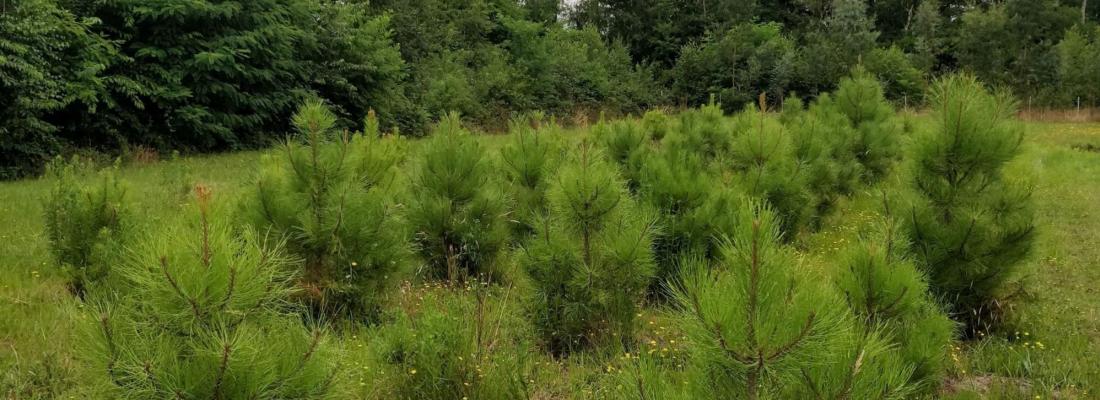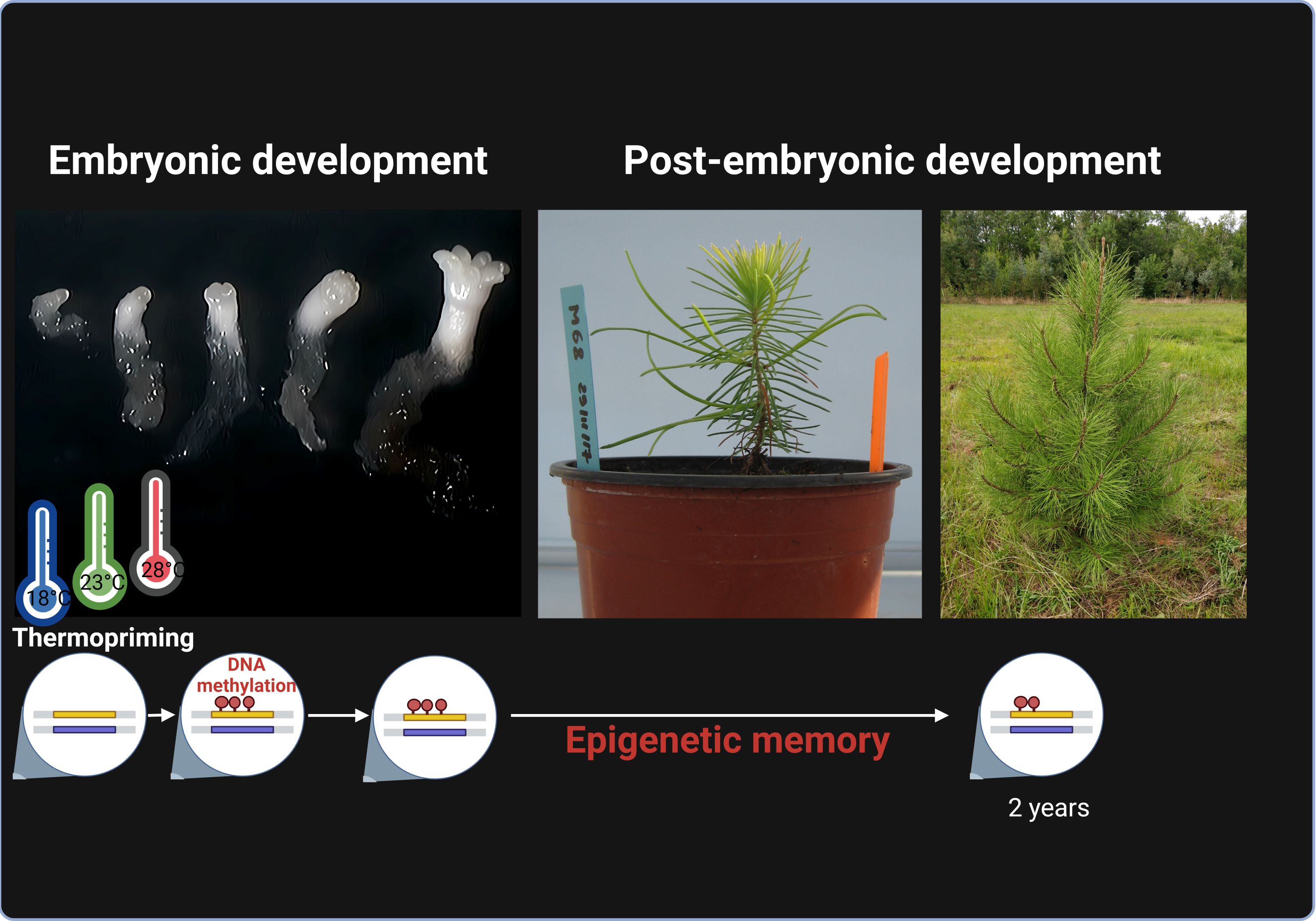Biodiversity Reading time 3 min
Maritime pine seeds remember temperature conditions
Published on 13 November 2024

Climate change projections indicate that global temperatures will climb significantly, which means most forests will face more frequent and severe heat waves and droughts. Trees may experience these stressors very early on in development: as embryos within seeds. Since the late 2000s, seed production has been in decline for the maritime pine (Pinus pinaster), a major commercial tree species in the Mediterranean basin in general and in France in particular (see sidebar). Thus, it is important to understand how the maritime pine responds to temperature conditions during embryo formation (i.e., embryogenesis) and to clarify the lasting effects over the rest of the tree’s life cycle, from seedling to adult.
First, researchers observed that the temperature experienced by maritime pine seeds affected biological and biochemical facets of embryo development; this influence continued for at least 3 years after germination. Thus, young trees retained the memories of their very early experiences of temperature; however, no effects were seen 5 years post germination. These findings suggest an epigenetic rather than a genetic mechanism. More specifically, the temperature conditions experienced during embryonic development induced changes in gene expression without modifying gene DNA sequences. Epigenetic changes can be passed along during cell division over the course of development; they are also potentially reversible.
Next, to simplify the study of these complex epigenetic processes, the researchers produced multiple embryos from a single maritime pine seed (i.e., clones of a single tree). They created three groups of embryos that were exposed to one of three temperatures (control: 23°C, low: 18°C, high: 28°C) over the 3-month maturation period. All the seeds were then germinated at 23°C. Observations continued over the next five years: first in the laboratory, then in a greenhouse, and finally in the field. The maritime pine genome is extremely large—8 times larger than the human genome—and has yet to be fully sequenced. Consequently, the researchers refined a technique for obtaining data on relevant genomic regions and genes. They were then able to analyse patterns of DNA methylation, an epigenetic process that can induce changes in gene expression. The resulting changes can be passed along during cell division over the course of development. Analyses were run on the seed groups at three developmental points. The researchers noted the existence of several thousand DNA methylation marks, whose presence was influenced by the temperature experienced by the embryos during maturation and that remained consistent two years post germination.

The researchers identified 10 genes that displayed an accumulation of epigenetic marks. The genes were associated with known functions, notably protective responses to stress, adaptations to temperature conditions, and embryo development. These genes are most likely behind the maritime pine’s epigenetic memory of temperature conditions during embryogenesis, a memory that persists in the growing tree.
This work shows that epigenetic modifications during embryonic development can persist into post-embryonic development (i.e., post germination) in trees specifically and plants more generally. The researchers’ findings suggest that long-lived plants, such as trees, could be conditioned in very early development to better cope with temperature or other environmental factors, a trait that would be of interest in forest management. Epigenetic memories could also play a crucial role in helping trees respond to recurrent stressors, such as thermal stress, and to rapidly adapt to changing environmental conditions over their entire lifetimes. Forest management regimes could utilise this epigenetic mechanism to better adapt and sustainably conserve forest genetic resources in the face of global climate change.
The maritime pine in France
In France, the maritime pine covers 6.4% of woodland surface area and is particularly abundant (~1 million ha) in the southwestern part of the country. This species can tolerate nutrient-poor, sandy soils and is almost exclusively found in the large forested areas of Landes de Gascogne (surface area covered: >800,000 ha). Maritime pine is mainly harvested for wood. In France in 2022, it was the source of 14% of sawn timber, 16% of lumber, and 30% of industrial wood.
Reference
Trontin J.-F. et al. (2024). Epigenetic memory of temperature sensed during somatic embryo maturation in 2-year-old maritime pine trees. Plant Physiology DOI: 10.1093/plphys/kiae600
